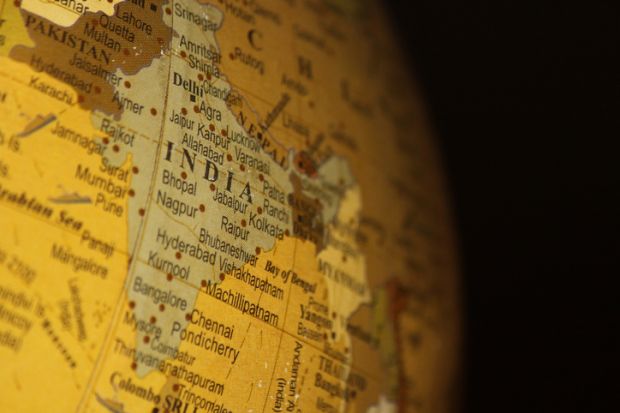In 1997, Niall Ferguson edited a book called Virtual History: Alternatives and Counterfactuals, where experts reflected on what the world would be like today if the American Revolution had never happened, if Hitler had invaded England in 1940 or if JFK had never been assassinated.
Yet despite a few such illustrious cases, counterfactual history – sometimes known as virtual, hypothetical or alternative history – is generally frowned upon by historians more interested in what is actually in the archives. Now, however, two French scholars have set out to challenge this assumption in a wide-ranging new book, A Past of Possibilities: A History of What Could Have Been (Yale University Press). Both professors of history, Quentin Deluermoz is based at the University of Paris, while Pierre Singaravélou works at King’s College London and Panthéon-Sorbonne University.
It is not unusual for researchers to say they don’t want to “enter the realm of the ‘counterfactual’”, the pair told Times Higher Education via email, before going on do just that. And this is not surprising, because “one cannot compare, evaluate a trajectory, prioritise causes, criticise the role of a great man, without resorting to this mode of reasoning”. When the British historian, Jay Winter, wanted to test the claim that “the Great War precipitated England’s demographic decline”, he did so by hypothesising that the war “had never happened and showed that there would have been a demographic decline in any case”, so indicating that it was “the result of structural and not contextual causes”.
The two professors also made the somewhat paradoxical point that “the history of the distant past always depends on the events of the near past”. If the French had succeeded in colonising southern India in the period between 1750 and 1850, they pointed out, British influence would have been confined to the northern half of the country – and even today scholars might be writing separate histories of “Dravidia” and “Hindustan”, rather than treating pre-modern India as a single unit. Being willing to explore counterfactual questions allows one to see this.
It was also useful, the authors suggested, to “study the feared and hoped-for futures of the actors of the past” and to “reread the archives without the knowledge of what happened afterwards”. Such “hoped-for futures” at the time of the 1848 revolution in France, for example, were “expressed in the abundance of expectations and promises, which can be read in the countless petitions, placards, poems and appeals that were written at the time. Moreover, these unfulfilled futures are then echoed in memories and reused in other situations.”
Since history is “often written by the victors”, added Professor Deluermoz and Professor Singaravélou, it “tends to ‘crush the unfulfilled potential of the past’, as Walter Benjamin so aptly put it. By giving a voice to the ‘losers’ of history, the counterfactual approach allows for a reversal of perspectives.”
Register to continue
Why register?
- Registration is free and only takes a moment
- Once registered, you can read 3 articles a month
- Sign up for our newsletter
Subscribe
Or subscribe for unlimited access to:
- Unlimited access to news, views, insights & reviews
- Digital editions
- Digital access to THE’s university and college rankings analysis
Already registered or a current subscriber? Login








